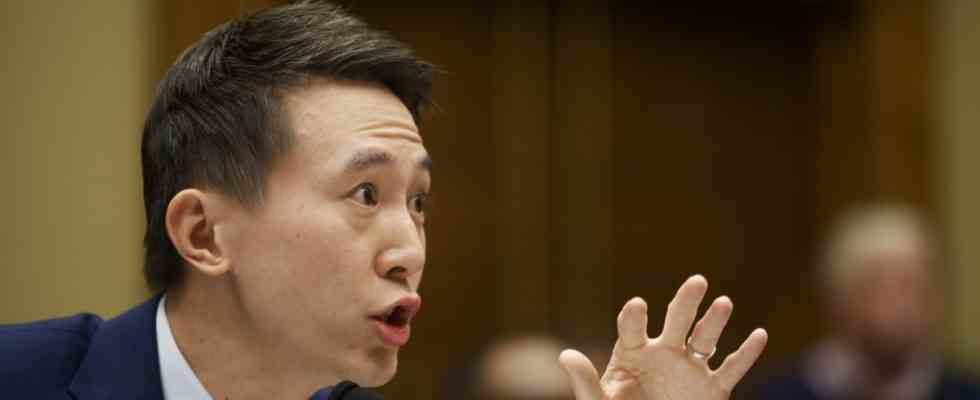Never has a social media app grown faster, never been more popular with the world’s youth than Tiktok. Tiktok has 150 million users in the USA alone – and yet it is struggling to survive in its current form. Before Tiktok boss Shou Zi Chew started what was probably his most difficult walk to date in Washington on Thursday, he addressed users directly in one of the short videos typical of Tiktok: “Some politicians have started talking about a ban on Tiktok,” said Chew. “But with that you could lose 150 million all Tiktok.”
It was no coincidence that the US Capitol Dome featured in the background of the video: it is the seat of the US Congress, and its members had called Chew to testify amid growing mistrust of Tiktok.
Running the gauntlet for the TikTok boss
The House Commerce Committee hearing turned into a gauntlet for Chew. He was bombarded with questions about TikTok’s harmful impact on teens’ mental health, including a recent TikTok video showing a user threatening the chair of the committee questioning him with gun violence. After a 10-minute pause, Chew informed MPs that the video – which appeared to have been on the platform for several weeks – had now been removed.
The focus of the hearing, however, was Tiktok’s relationship with the Chinese parent company Bytedance, and the main questions derived from this: Can American user data be viewed by actors in China or flow there? Can the Chinese Communist Party directly or indirectly influence the algorithm for possible disinformation campaigns?
Chew said at the start of the session that he takes lawmakers’ national security concerns about the app “very, very seriously.” When MPs from both parties asked several times whether China’s government had access to Tiktok data, Chew replied that he had “seen no evidence”. He referred to the “Project Texas” planned by Tiktok, which would create a “firewall” that would protect American user data in the future.
No proximity to China? The Ministry of Commerce in Beijing disagrees
The deputies didn’t seem to have much patience with Chew’s explanations, though. The TikTok boss kept dodging questions, although they were repeated multiple times, such as when he was asked if he believed China’s Uyghur minority was facing repression.
Chew denied any CCP interference with the company. However, it did not help that China’s Ministry of Commerce announced hours before the hearing in Washington that it would veto a possible sale of TikTok. Several MPs pointed out to the TikTok boss that the Commerce Ministry’s statement in Beijing appeared to be in clear contradiction to his claim that it had virtually nothing to do with China.
The hearing comes at a time when tensions between the US and China have risen. FBI Director Christopher A. Wray had previously warned of Beijing’s “influence operations” via Tiktok, a group of MPs is calling for a ban, and the US government has reportedly asked parent company Bytedance to sell the app. Meanwhile, more and more governments around the world are enacting rules that prohibit their officials and employees from installing Tiktok on their phones. In Europe, these were most recently the Netherlands, Norway and Great Britain.
Singapore native Chew has offered projects to both the US and Europe within which independent third parties would be allowed to control Tiktok’s data flow and algorithms. Project Texas is what it’s called in the US, but that doesn’t seem to be enough for President Joe Biden’s administration. “The app has become a battleground in a technological cold war between the two countries,” the wrote New York Times on Thursday.

